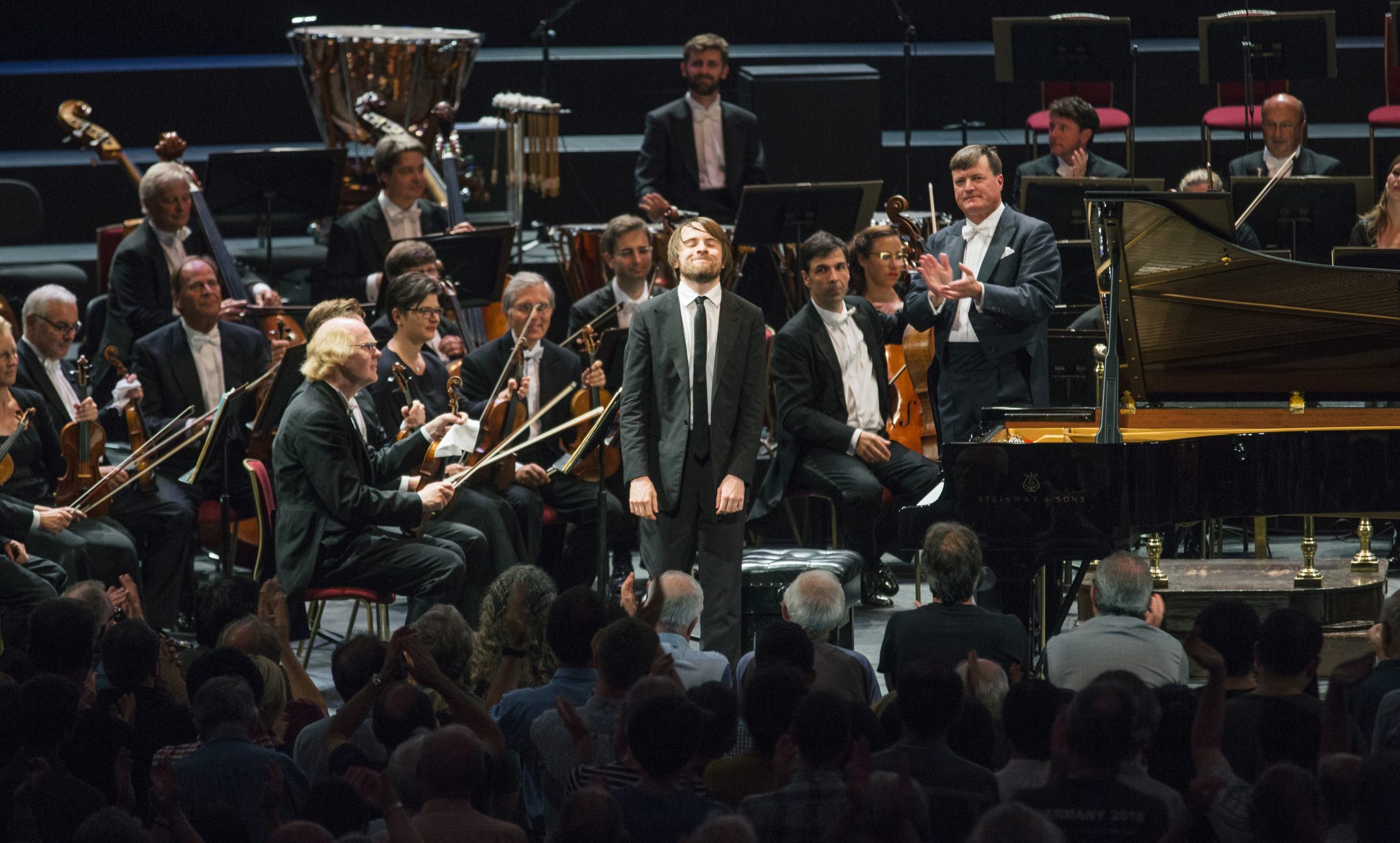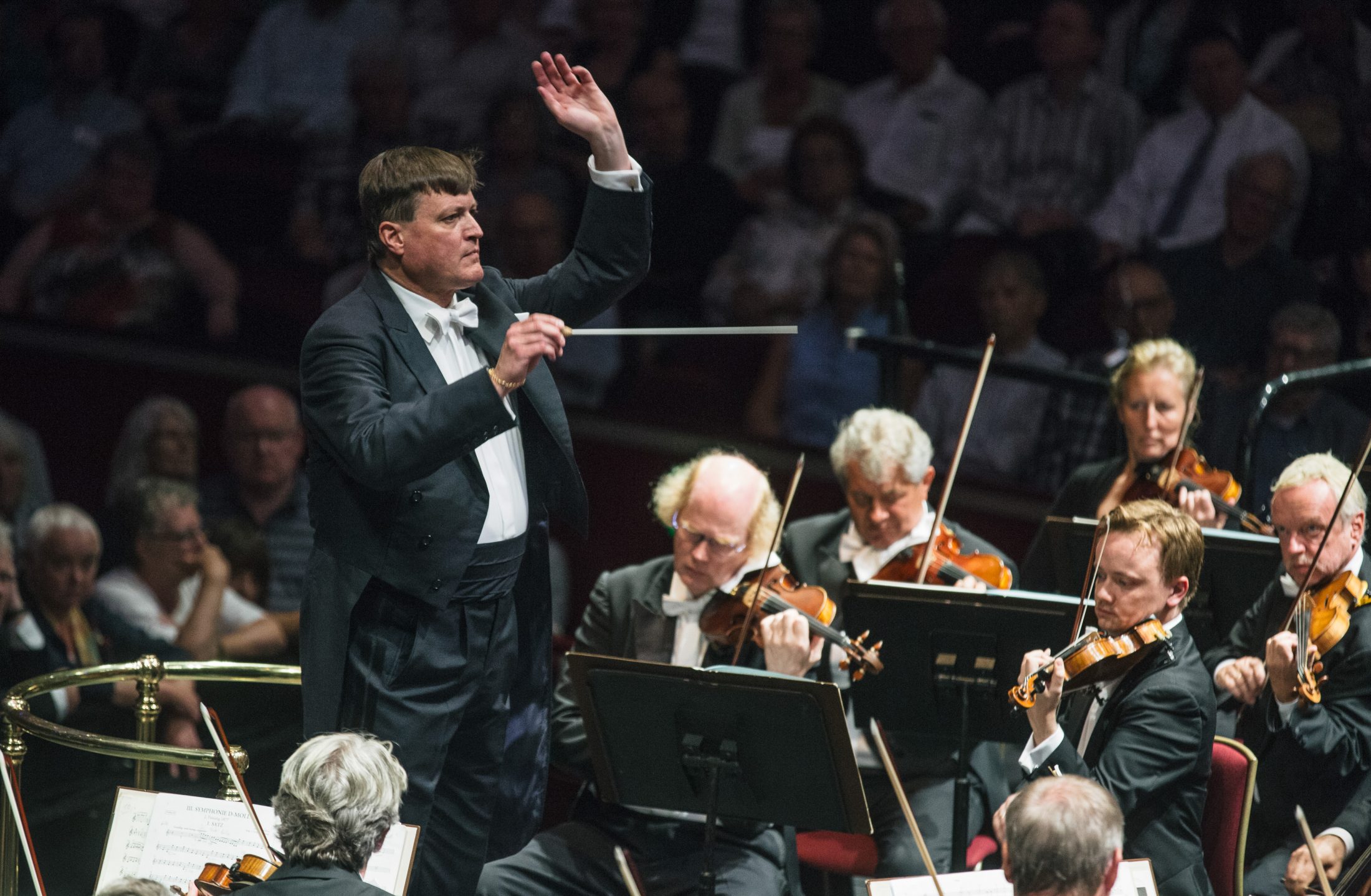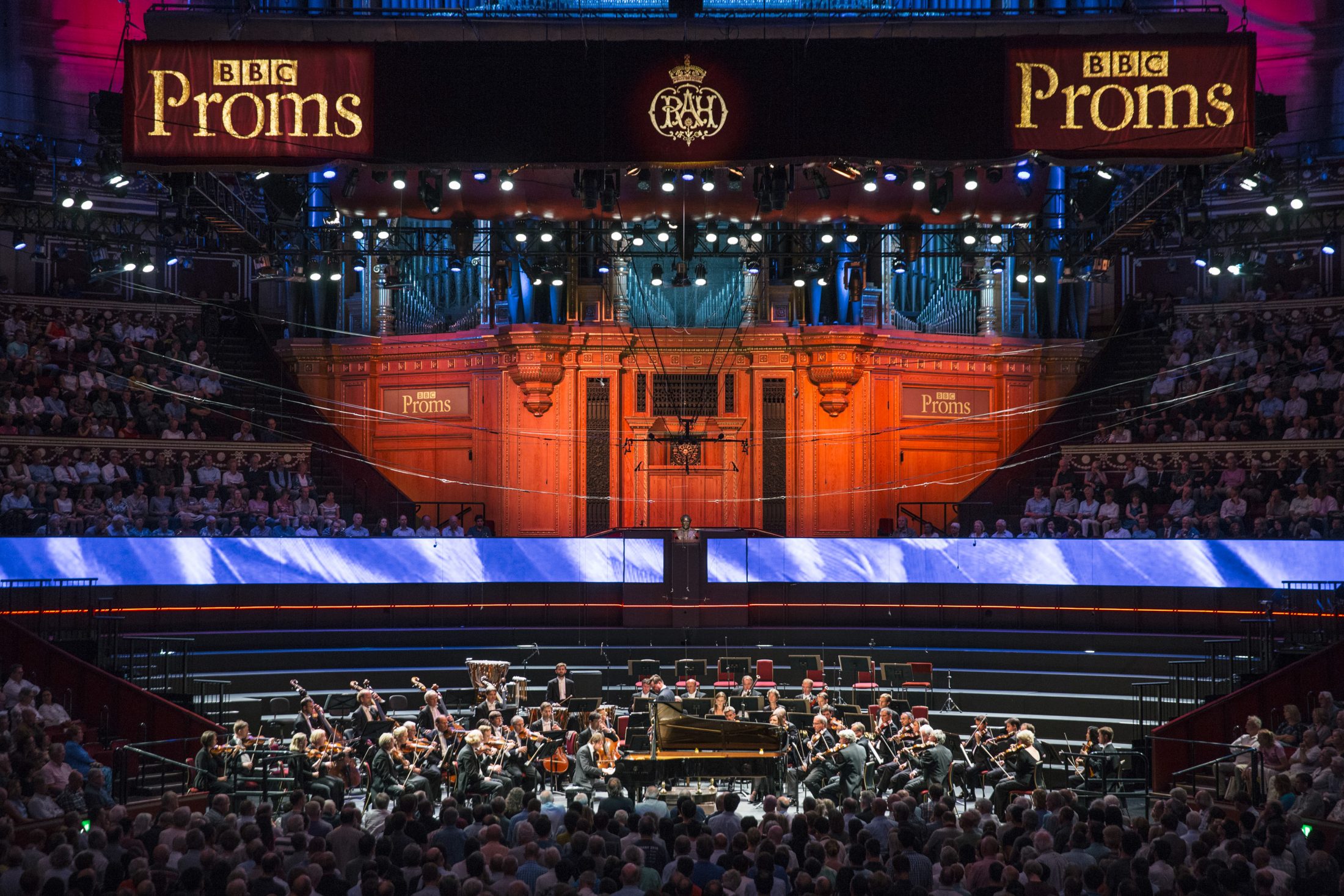PROM 71, Mozart piano concerto no.24, Bruckner symphony no.3, Daniil Trifonov, Christian Thielemann, Staatskapelle Dresden
The meteoric rise of Daniil Trifonov reminds me of the stellar career path of his fellow Russian, Evgeny Kissin back in the nineties. Kissin was only 25 when he gave the first ever solo piano recital at a Proms concert. Trifonov is now the same age and as much in demand all over the world as his colleague used to be. The young virtuoso is so busy that I am getting worried that it might all end in burn-out. During my summer jaunts to Germany and Israel I couldn’t help noticing that Trifonov was touring locally at the same time. Finally I caught up with his solo recital at the end of July in Verbier. He was in superb form, but his choice of programme was not only demanding for him, by the time he plunged into Rachmaninoff’s fiendishly difficult sonata no.1, I was quite exhausted(as a listener).
Whatever you may think of some of Trifonov’s interpretations, he certainly adds character and personality to everything he does. Scrolling through the endless list of concerts he is giving in the coming 8 months, I am struck by how diverse and extensive his repertoire already is.
Mozart’s piano Concerto No.21 in C major is definitely one of the sunniest pieces of the lot, but not necessarily the easiest concert he is giving this autumn-winter. The problem for any pianist is that there are so many notes, in the outer movement it can seem like there is no let-up. And Trifonov likes to play fast.
K467 used to be known as Elvira Madigan when I grew up. This was because the Andante movement was used in the Swedish film (from 1967) of the same name. The true story about a Danish tightrope walker who had an illicit love affair with a Swedish aristocrat has a romantic core, but it all ends in tragedy.
But lets not forget Christian Thielemann. Amazingly enough for such a well-known conductor this was his debut at the Proms. He is of course the Music Director of the Bayreuth Festival and you can find my review of the Tristan and Isolde that he conducted recently among my reviews from August. Thielemann is now in his fifth year as Prinicpal Conductor of the venerable Staatskapelle Dresden and they had no problems keeping up with Trifonov’s at times tremendous speed bursts in the Mozart concerto. In fact, the Dresdeners achieved a slightly better balance than the Berliners the other day. Thielemann had, probably wisely, added some first and second violins to counter the force that is Daniil Trifonov.
The first allegro maestoso movement with its various moods and contrasts suits the soloist perfectly. Daniil wasn’t partricularly maestoso, but then he is still too young and eager to impress, but neither did he try to over-embellish. He varied the pace internally but held the line and only towards the end of the movement, in the recapitulation did he loosen the reins and then delighted in showing off his own cadenza which harmonically brought us back into the 21st century.
The glowing middle movement can turn into an exercise in early romanticism, but here Trifonov gave it some majestic poise. He displayed pure lyricism but did I also spot a hint of delicately held-back sadness?
In the final rondo movement it was back to the swing of things . Just like in the piano concerto no.24 there is some call and response between orchestra and soloist and it was clear that these partners were enjoying each others company. By the time the final cadenza had arrived Daniil was ready to rip and rock. He opted for a very modern roundup of the whole movement and everybody finished together in a happy flourish. Thielemann and his orchestra seemed to be genuinely impressed by the Russian’s performance but the Dresdeners were in top form as well and deserved the enthusiasm of the Proms audience.

Thielemann and the Staatskapelle have started to release live recordings of the Bruckner symphonies, but no.3 hasn’t featured yet. Judging by last night’s performance they are already well familiar with this material.
Bruckner dedicated the first version of the symphony “with the deepest respect to His Aristocratic Self Mr. Richard Wagner, the unequalled , world famous and sublime master of poetry and music”. Yes, it looks like grovel, adulation, grovel, but one has to understand that Bruckner would (almost) have gone through hell fire for Richard if it wasn’t for the fact that he was a devout catholic and actually believed in eternal damnation.
He went as far as quoting snippets of Wagner’s operas which greatly pleased the German composer who recommended the work to the Vienna Phil. The premiere in December 1878 , conducted by the composer himself was a complete disaster. , which was by all accounts both his own fault and that of the players. Ten years later he revised the work and this time the same orchestra did an excellent job.
Thielemann has wisely opted for the ‘original’ 1876-77 edition which surely is closer to what Bruckner set out to do. The later version was heavily influenced by friends, pupils and critics.

The Dresden orchestra has Richard Strauss in its DNA (it premiered many of his operas and other works) and its main task is to accompany performances of opera and ballet at the Semperoper. In Thielemann they have one of the world’s leading conductors of Wagner operas. In this performance Thielemann and the Staatskapelle made it clear why they at the moment should be considered among the very finest interpreters of Bruckner. They allowed for a very spacious first movement was spacious, and this provided room for bigger things to come. I can imagine that Thielemann doesn’t try to restrict himself to exact tempo markings and is not afraid of moderate flexibility. I got a sense that every individual movement could stand up on its own in a concert hall.
Nothing is more Brucknerian than the scherzo with all its very frivolity. If music can hide a mysterious geographical code, then the third movement, with its thumping dance rhythms is surely spelling out Austria!
The Finale is full of mood swings : there is a ball going on while somebody lies for dead in a corner. With all the themes and ideas occurring here one could build a another symphony. The brass section was playing as if their contracts were about to run out and they were hoping for a renewal.
Although we only have on record what Wagner thought about the opening trumpet theme, he would have been well pleased with the end (which is a repeat of the trumpet’s introductory theme). This is so Wagnerian, but not in an irritating sycophantic way.
By attending Proms and listening to the accompanying lectures and artist interviews (on radio) I have learned so much during the past week about Bruckner. So many of these Proms concerts are inspirational and I am already looking forward to next season when we will get a good idea of what the new director of the Proms, David Pickard, brings into this unique, high quality mix.

